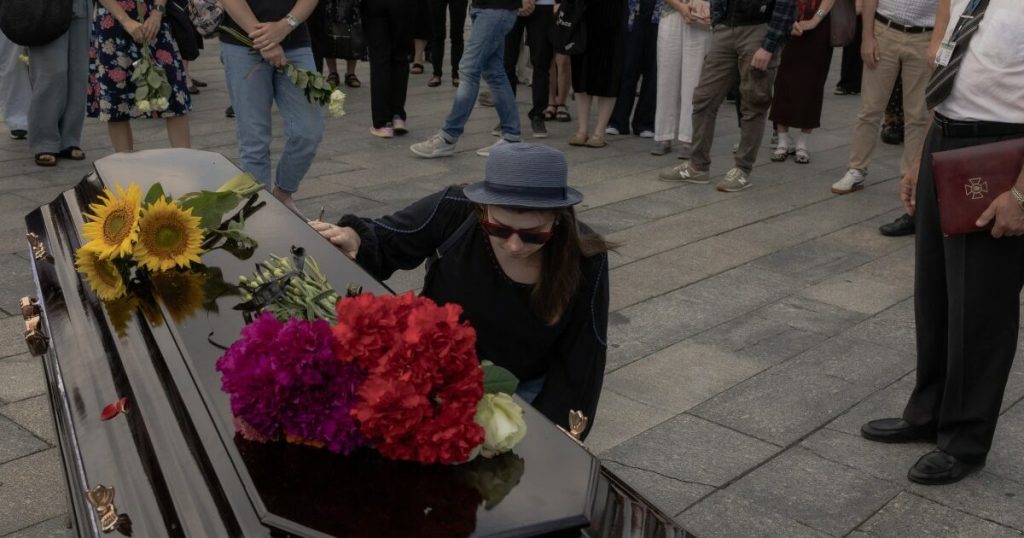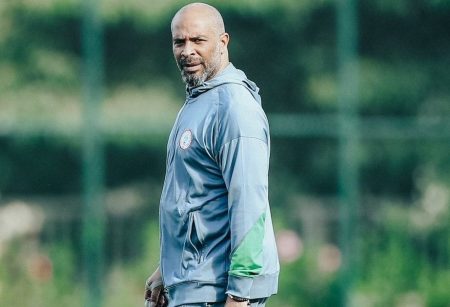The somber atmosphere within a Kyiv cathedral bore witness to the tragic loss of Victoria Roshchyna, a 27-year-old independent journalist who perished under suspicious circumstances in Russian captivity. Mourners, many of whom were her colleagues from the journalism community, gathered to pay their final respects, their grief palpable even amidst the ritualistic solemnity of the service. Roshchyna’s coffin remained closed, a stark reminder of the brutal treatment she allegedly endured before her untimely demise. Her body, repatriated by Russia in February, bore the grim testament of torture, marked by abrasions and a broken rib, a chilling indictment of the conditions she faced during her confinement. Her death, shrouded in secrecy and unanswered questions, has cast a long shadow over press freedom and the perils faced by journalists reporting in conflict zones.
Roshchyna’s dedication to uncovering the truth led her on a perilous journey to the Russian-occupied Zaporizhzhia region in August 2023. This reporting trip would mark the beginning of her ordeal, culminating in her disappearance and subsequent death in Russian detention. The circumstances surrounding her arrest remain murky, with Russian authorities offering no explanation for her tragic fate. The officiating priest at the funeral service poignantly referred to the “torments” she endured, highlighting the dangers inherent in reporting truths that certain powers find inconvenient and threatening. Roshchyna’s commitment to her profession, even in the face of such risks, underscores the courage required to bring hidden realities to light.
Investigations conducted by Reporters Without Borders and the Ukrainian investigative news outlet Slidstva shed some light on Roshchyna’s harrowing journey through Russian detention. Their findings suggest she was apprehended in Energodar, southern Ukraine, and then transferred to Melitopol, another Russian-held city, where she was held for several weeks. Her ordeal continued with a transfer to a prison in Taganrog, Russia. Upon arrival, she bore the marks of abuse – scars and knife wounds – a grim foreshadowing of the hardships to come. Further accounts, gleaned from a cellmate, detailed her deteriorating health, marked by a refusal to eat and eventual solitary confinement, painting a bleak picture of her final days.
Roshchyna’s case highlights a disturbing trend of repression in Russian-occupied territories. Thousands of Ukrainians who have voiced opposition to Moscow’s rule have been detained since the 2022 invasion, often facing torture at the hands of security forces. Human rights groups have documented numerous instances of such abuse, underscoring a systemic pattern of human rights violations. Ukraine has condemned Roshchyna’s death as “premeditated murder,” accusing Russia of perpetrating a war crime. The Ukrainian government has also initiated legal proceedings against the warden of the Taganrog prison, alleging Roshchyna was subjected to systematic torture, beatings, humiliation, threats, and severe deprivation of medical care, food, and water.
The international community has also taken note of Roshchyna’s case. A UN expert panel has demanded answers from the Russian government regarding the circumstances surrounding her death. While Russia maintains its commitment to investigating torture and abuse within its penal system, it has remained silent on the specific allegations concerning Roshchyna’s treatment. This silence further fuels suspicions and underscores the urgent need for transparency and accountability. Roshchyna’s case is not an isolated incident but rather a stark illustration of the risks faced by journalists, activists, and ordinary citizens who dare to challenge the prevailing narrative in conflict zones.
The funeral service in Kyiv was a poignant testament to Roshchyna’s courage, dedication, and the profound impact she had on her colleagues and community. Her father and sister, their hands clasped together throughout the ceremony, bore the weight of their grief with quiet dignity. Fellow journalists recalled her tireless ambition, her preference for working independently, her “one-woman band” approach to reporting. They spoke of her fierce independence and her unwavering commitment to bringing the stories of those living in occupied territories to light. Tributes poured in, recognizing her “historic work” and unwavering belief in the humanity of those living under occupation. Roshchyna’s legacy serves as a stark reminder of the vital role of independent journalism and the high price often paid for seeking truth in times of conflict.














